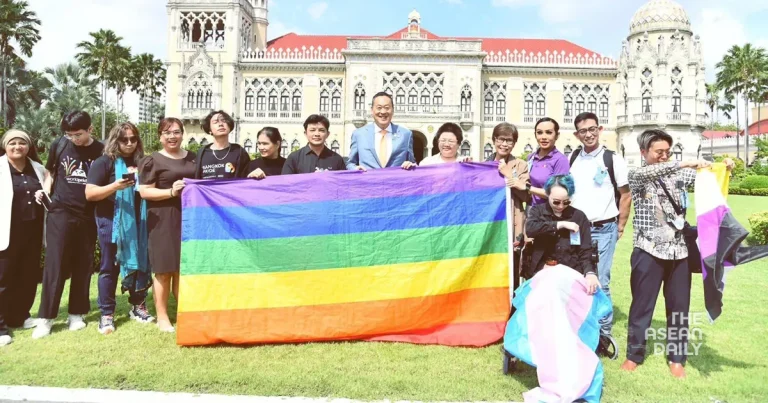6-7-2024 (BANGKOK) Thailand is on the brink of a significant milestone as the nation moves closer to enshrining legal protections for the lesbian, gay, bisexual, transgender, intersex, and queer (LGBTIQ+) community. This historic development is poised to usher in a wave of economic benefits, positioning Thailand as a leader in LGBTQ+ rights within Southeast Asia.
The country’s marriage equality bill received final approval from the Senate in June. Now, it only awaits royal endorsement and publication in the royal gazette to become law, 120 days post-publication. This legislation will make Thailand the first Southeast Asian country, and the third in Asia following Nepal and Taiwan, to legalise same-sex marriage. The first ceremonies could occur by the year’s end.
“This is an immense advantage,” remarked Todd Sears, founder and CEO of Out Leadership, a global platform promoting business-driven equality. “Leading in this area will bring unexpected benefits, beyond just marriage equality.”
The bill aims to eliminate gender-specific language from marriage laws, substituting terms like “husband” and “wife” with “spouse” and “person.” It will also grant same-sex couples equal rights in child adoption, healthcare, and inheritance.
Experts believe this legislative change positions Thailand to tap into a “rainbow economic wave,” boosting tourism, attracting diverse talent, enhancing soft power, and fostering a more inclusive business environment.
Known for its welcoming stance towards the LGBTQ+ community, Thailand’s new legislation is expected to bolster its reputation and attract global businesses prioritising diversity and inclusion. “This law will open new avenues for talent and economic growth, making workplaces more productive,” Sears added.
Sears highlighted studies by the Williams Institute, which showed positive economic outcomes in countries where same-sex marriage was legalised. “Every economic indicator improved, and Thailand will likely experience similar benefits,” he noted.
Despite widespread public support for marriage equality, as evidenced by a June poll by North Bangkok University where 82.5% backed the government’s campaign, the business environment in Thailand still has gaps in protections for LGBTQ+ workers. A 2019 UN report highlighted persistent stigma and discrimination faced by the community, affecting their employment opportunities.
Jhitsayarat Siripai, an assistant professor in gender and media at Rajamangala University of Technology, believes the corporate sector is already paving the way for inclusivity. “Many private companies in Thailand recognise and respect LGBTQ+ individuals, promoting equality in the workplace,” he said.
Siripai emphasised the need for further labour regulations to support LGBTQ+ employees’ health and wellbeing, as social intolerance and discrimination still prevail.
During Bangkok Pride, numerous companies aligned their brands with the cause, highlighting the intersection of social responsibility and economic opportunity. However, Sears warned against “rainbow washing,” where companies superficially support LGBTQ+ causes without meaningful action.
Gen Z, more than any previous generation, values diversity and inclusion. According to a 2024 study by the Public Religion Research Institute, nearly 30% of Gen Z adults in the US identify as LGBTQ+, indicating a significant demographic shift. In Thailand, Gen Z comprises a substantial portion of the population, underscoring the potential for positive economic and social change.
Murat Uzel, founder and designer at MP Experiences, noted the substantial contribution of LGBTQ+ tourism to Thailand’s economy. “Thailand is already a popular destination for the gay community, and this law will enhance its appeal,” he said.
Thailand’s burgeoning “Y series” – television dramas with queer love storylines – exemplifies the nation’s soft power potential. These series, popular across Asia and beyond, generate significant economic value and cultural influence.
Krisda Witthayakhomjornet, CEO of Be On Cloud, a major production studio, believes the marriage equality bill strengthens Thailand’s global image. “This legislation reflects our country’s strength and inclusivity,” he said.
For many, like Paolo Rodriguez, a UX designer from the Philippines, Thailand’s progressive stance on LGBTQ+ rights is inspiring. “It makes me proud that Thailand is leading the way in queer rights in Southeast Asia,” he said, expressing hope for similar advancements across the region.
Thailand’s marriage equality bill marks a pivotal moment in its history, promising a more inclusive future while setting a precedent for neighbouring countries.




